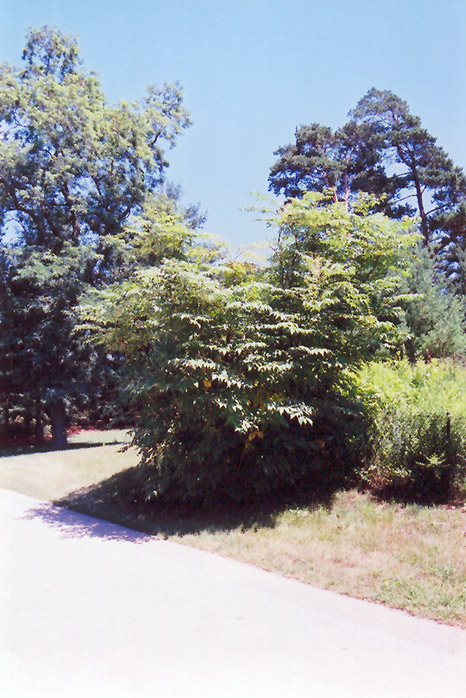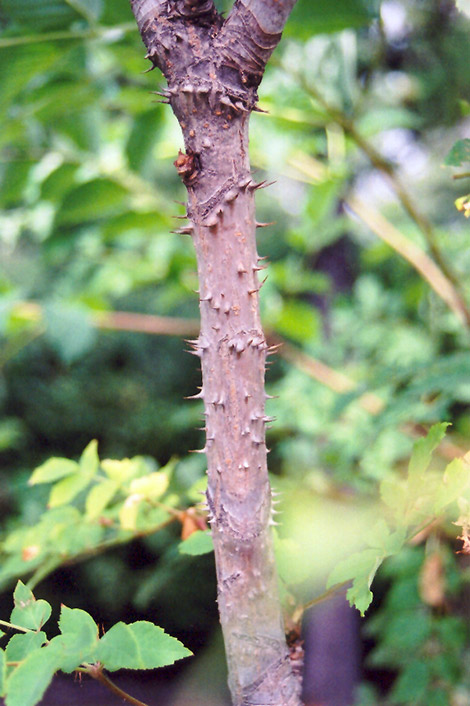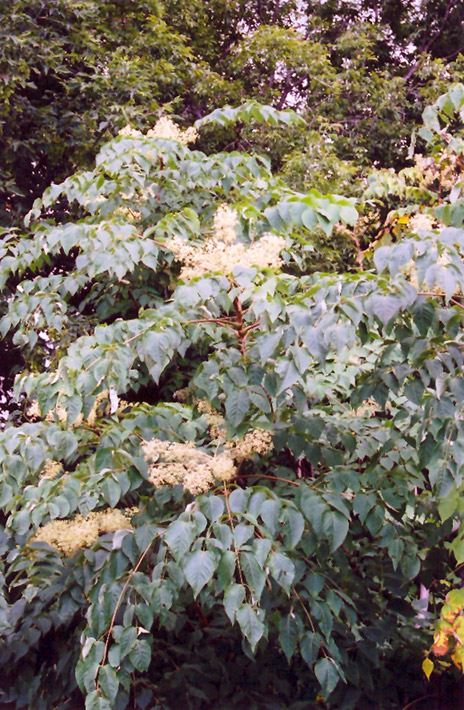Plant Finder
* This is a "special order" plant - contact store for details
Height: 15 feet
Spread: 15 feet
Sunlight:
![]()
![]()
![]()
Hardiness Zone: 4b
Other Names: Devils Walkingstick
Description:
A shrubby small tree with extremely spiny branches (hence the common name) and showy white flowers in spring; enormous fan-shaped leaves bring a tropical touch to the garden
Ornamental Features
Hercules Club features airy panicles of creamy white star-shaped flowers at the ends of the branches from mid to late spring. It has dark green deciduous foliage. The enormous serrated pointy bipinnately compound leaves turn yellow in fall. The purple fruits are carried on plumes from early to late fall. The spiny gray bark is extremely showy and adds significant winter interest.
Landscape Attributes
Hercules Club is a multi-stemmed deciduous shrub with a ground-hugging habit of growth. Its strikingly bold and coarse texture can be very effective in a balanced landscape composition.
This shrub will require occasional maintenance and upkeep, and is best pruned in late winter once the threat of extreme cold has passed. It is a good choice for attracting birds to your yard. Gardeners should be aware of the following characteristic(s) that may warrant special consideration;
- Suckering
- Spiny
Hercules Club is recommended for the following landscape applications;
- Accent
- Vertical Accent
- Mass Planting
- General Garden Use
- Naturalizing And Woodland Gardens
Planting & Growing
Hercules Club will grow to be about 15 feet tall at maturity, with a spread of 15 feet. It tends to be a little leggy, with a typical clearance of 3 feet from the ground, and is suitable for planting under power lines. It grows at a medium rate, and under ideal conditions can be expected to live for 60 years or more.
This shrub performs well in both full sun and full shade. It is very adaptable to both dry and moist locations, and should do just fine under average home landscape conditions. It is not particular as to soil type or pH, and is able to handle environmental salt. It is highly tolerant of urban pollution and will even thrive in inner city environments. This species is native to parts of North America.
* This is a "special order" plant - contact store for details


